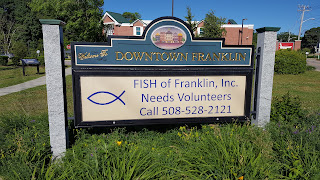This letter was posted to the "News" section of the Franklin home page. It is unsigned and lacking a description as to who or what group authored it.
MPO seems to be the acronym for Metropolitan Planing Organization. MassDOT has 13 MPOs to cover the state according
to the map located here. It appears that Franklin is part of the Boston Region MPO which would explain why getting assistance and funding from the MPO is difficult.
A Metropolitan Planning Organization (MPO) is a transportation policy-making organization made up of representatives from local government and transportation authorities. Federal legislation passed in the early 1970s required the formation of an MPO for any urbanized area with a population greater than 50,000. MPOs were created to ensure that existing and future expenditures for transportation projects and programs were based on a continuing, cooperative and comprehensive (3-C) planning process. Federal funding for transportation project and programs are channeled through this process.
As transportation policy-making entities, MPOs have five core functions.
- Create a fair and impartial setting for effective regional decision making in the metropolitan area.
- Evaluate transportation alternatives and needs through appropriate studies and activities as detailed in the MPOs Unified Planning Work Program (UPWP)
- Maintain a Long-Range Transportation Plan (RTP). Develop a 20-year transportation planning document which identifies existing infrastructure conditions, projects future transportation needs and provides a plan or program to attain the stated goals and visions.
- Develop a Transportation Improvement Program (TIP). Develop a program based on the long range plan and designed to serve the MPO’s goals using spending, and other financial tools.
- Involve the public. Involve the general public and all significantly affected sub-groups in the four essential functions listed above.
More about the MPO and process can be found on this MassDOT page
http://www.massdot.state.ma.us/planning/Main/PlanningProcess/RegionalPlanning.aspx







